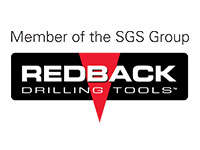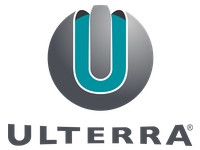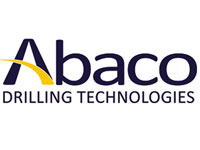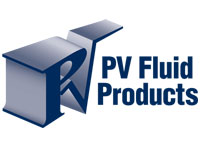AADE Houston IETG Meeting
When: Oct 14, 2025 @ 12:45 PM
Want to SPONSOR the IETG Meetings? The cost is $600 for the calendar year. Click Here to Sponsor!
REGISTER HERE
Attendance of this meeting in entirety could be credited up to 2 professional development hours.
DATE: TUESDAY, October 14, 2025 - 1:00 PM - 3:00 PM
Note NEW Start Time! Registration/Check-in begins at 12:45 PM.
Note NEW Start Time! Registration/Check-in begins at 12:45 PM.
LOCATION: Norris Conference Center – City Centre: Elm Room, 816 Town & Country Blvd., Suite 210, Houston, TX 77024
COST: Member: Free to attend / Non-member: $15
Non-members have the option to join as a member or renew your membership before registering, then the meeting cost will be free as well as all subsequent DTC meetings for 2025.
Program Topic: “Advances in Well Construction and Design"
SPEAKERS:
1. Todd Stair, CEO – Citadel Casing Solutions
Presenting: “Float Valve as a Barrier: Shoe Track Optimization for Well Integrity and Efficiency”
This talk explores innovative approaches to shoe track optimization for enhancing well integrity and efficiency. It highlights the importance of high-quality downhole tools and introduces advancements in casing technology aimed at overcoming traditional limitations. Key topics include the qualification and deployment of float equipment as independent mechanical barriers in unconventional wells, operational benefits of uncemented shoe tracks, and the successful field deployment of these technologies. The presentation also covers case studies demonstrating significant cost savings, improved reliability, and enhanced production outcomes.
Todd Stair is CEO of Citadel Casing Solutions with 14 years of experience in cementing tools and casing hardware. Starting with Citadel on the ground floor in 2016 as an R&D engineer, he helped develop some of Citadel’s core technologies including the gas-tight Ultra Mag valve and TrenchFoot wet shoe system. He held other roles in marketing and sales before becoming CEO in 2021. Todd holds a BS in Mechanical Engineering from the University of Oklahoma.
2. Blake Arabie, Senior Vice President, Technology – Oilfield Service Professionals
Presenting: “Optimizing Drillable Technology”
Oilfield Service Professionals (OSP) is advancing wellbore isolation and remediation through the development of modular, high-performance drillable intervention systems. Traditional downhole tools often face challenges such as premature setting, slip retention failures, restricted flow areas, and inefficiencies requiring multiple deployment configurations. These limitations are particularly critical in ultra-deepwater, HPHT, and complex casing environments where robust, validated barriers are essential.
To address these challenges, OSP has introduced the Drillable Technology Suite, featuring:
· BarrierPro™ (cast-iron) and SqueezePro™ (composite) retainers/bridge plugs
· MultiPro™ modular setting equipment
· CleanPro™ drillable scrapers
bring production online helping operators to achieve desired break-even costs.
These solutions simplify inventory, enable versatile deployment across mechanical, hydraulic, and wireline methods, and enhance operational efficiency through quicker drill-out, superior slip retention, and improved sealing capabilities. The modular approach reduces costs while ensuring reliability in demanding well conditions.
Field case studies in the Gulf of America (GOA) validate these technologies. Deployments at 31,000 ft and 34,000 ft in HPHT wells demonstrated:
- API 11D1-qualified, 15,000 psi-rated sealing integrity
- Successful navigation of complex tieback receptacles and premium connection transitions
- Zero deployment failures and reduced non-productive time (NPT)
- Record-breaking depth achievements for drillable barriers
By integrating barrier systems, scrapers, and packers into single-trip solutions, OSP enhances well integrity while significantly reducing rig time and operator costs. These innovations set a new benchmark for reliability and performance in ultra-deepwater abandonment and intervention operations.
Blake Arabie is a respected industry leader with more than 16 years of experience across global oilfield operations, technology development, and executive management. His career spans leadership roles at major service companies—including Halliburton, Blackhawk Specialty Tools, and Frank’s International—as well as entrepreneurial leadership as Managing Partner of BioPURE Lafayette.
Blake has held diverse positions including Director of Product Lines, Operations Manager, Sr. Technical Advisor, Engineering Manager, Quality Manager, and Design Engineer. This broad foundation has given him deep expertise in petroleum engineering, product optimization, technology commercialization, upstream oil & gas, and reservoir engineering.
Currently serving as Senior Vice President, Technology at OSP, Blake spearheads the introduction of niche oilfield technologies into global markets, collaborating with major operators on well intervention and Plug & Abandonment (P&A) campaigns. He leads the design and development of custom downhole tools, facilitates strategic partnerships with technology providers, and drives growth by aligning innovative solutions with the evolving needs of the industry.
Blake is passionate about leading teams to success, advancing innovation, and bridging the gap between technology development and operational excellence.
He is a graduate of the University of Louisiana–Lafayette and Texas A&M University – Mays Business School.
3. Tom Emelander, Director of Business Development – YellowJacket Oilfield Services
Presenting: “Sidetracking with Whipstocks: An Efficient Method for Increasing Your Operational and Asset Value”
The increasing need to reduce costs of accessing reserves necessitates improvements in the reliability of well construction operations while maximizing the value of existing assets. Sidetracking during drilling, either as a planned or contingency measure, allows for the utilization of existing infrastructure to enhance production with reduced costs and environmental impact. Employing whipstocks for sidetracking has emerged as an efficient solution for both new and mature wells. Technological advancements have further optimized whipstock operations, providing a cost-effective alternative to traditional methods. Additionally, multilateral and re-entry projects can lower operational expenses and minimize environmental footprints. Ongoing development in equipment and analytical capabilities continues to enhance the prospects of successful whipstock sidetracking operations, enabling operators to pursue lower-risk options and optimize performance in the industry.
Tom Emelander is the Director of Business Development at YellowJacket Oilfield Services. His early career with started at Weatherford focused on support and implementation of Sidetracking Technologies. After gaining operational experience, he was elevated to Technical Specialist where he guided his team to significant improvements in service quality. In his final role at Weatherford as North American Product Line Manager he focused on increasing efficiencies.
4. Max Wang PhD & PE, Sharp-Rock Technologies, Inc.
Presenting: “Advanced Insight of Wellbore Strengthening Leads to Smart Selection of Preventative LCM”
It seems that any sized particles can be called LCM. However, they cannot always do what they are expected to do. Even carefully prepared formulations can perform way differently though, to naked eyes, they really look like the same.
Based on in-depth analysis of wellbore strengthening, the presenter is to reveal how to quantify all preventive LCM with one test for effectiveness. With the test, a user can clearly see one LCM is twice effective as the other in one case. In another case, a user can surprisingly see his LCM is only 1/19 effective as the other option.
Max Wang obtained his practical experience from his early years working in the oilfield as a mud engineer in China and as a cementing engineer in Gulf of America. Later he refocused himself on wellbore strengthening, wellbore stability analysis, cuttings reinjection design/analysis, all of which are geomechanics related. In 2007, he accomplished the world very first dissertation on wellbore strengthening study with rock mechanics and earned his PhD in petroleum engineering. Max is a cofounder of Sharp-Rock Technologies that is offering high performance LCM products to the industry ever since 2011. Max is a SPE distinguished lecturer and has approximately 60 technical papers, primarily on wellbore strengthening. Max holds multiple US patents and he is a winner of Hart’s E&P Special Meritorious Award for Engineering Innovation.
Register Here.
Reservations are required!
Deadline for reservations is Noon, Friday, Oct 10.
Location:
Norris Conference Center - CityCentre - Elm Room
816 Town & Country Blvd., Suite 210
Houston, TX 77024
Registration begins at 12:45 PM.
Parking:
The Norris CityCentre facility is located at the corner of intersection of IH-10 West and Beltway 8. The location features plenty of complimentary parking.
IMPORTANT NOTE – For your convenience, we encourage you to park in the garage that is attached to the Norris Centers location (enter the parking garage from Beltway 8). Take the “up” ramp in the middle of the parking garage. You will see signs with the Norris name and logo directing you to the correct floors to park. Please note that a number of parking spaces are reserved for other tenants of the complex and have “reserved” signs identifying these spaces, so please avoid parking in these reserved spots. There is plenty of parking on the roof!
For additional driving directions & a map, check their website at: https://norriscenters.com/houston-citycentre-map/

Contact houston@aade.org for any further questions.
Search AADE for PDF Files
© 2024 American Association of Drilling Engineers
Follow AADE:
This website uses cookies. By continuing to browse this website without changing your web-browser cookie settings, you are agreeing to our use of cookies. To learn more read our privacy policy.
Ok








